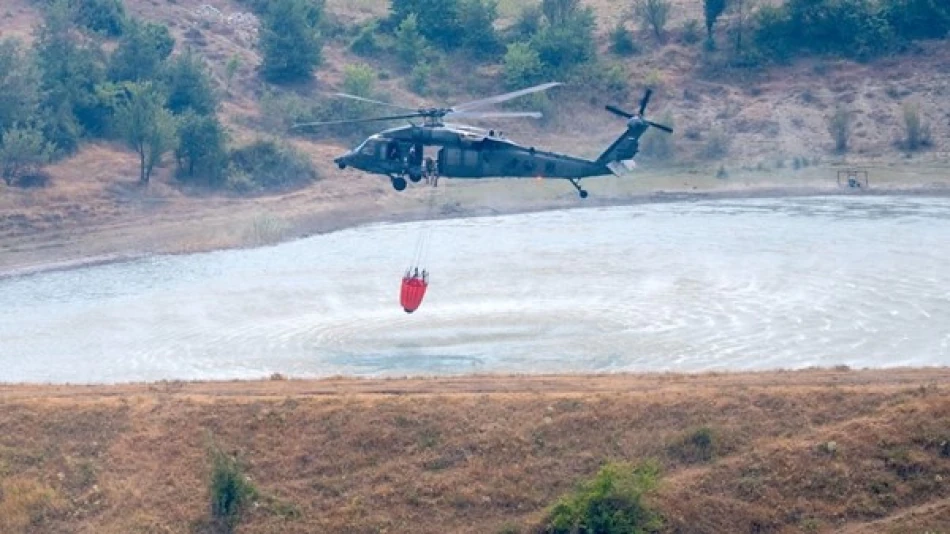
UAE Rescue Team Battles Raging Wildfires in Albania, Showcasing International Cooperation
UAE Firefighting Mission in Albania Demonstrates Growing Regional Influence Through Crisis Response
The United Arab Emirates has deployed specialized firefighting aircraft to combat widespread forest fires across Albania, conducting 27 aerial missions that have dropped over 1,261 tons of water in precise operations. This humanitarian intervention, ordered directly by President Sheikh Mohammed bin Zayed Al Nahyan, represents more than disaster relief—it signals the UAE's expanding soft power strategy in the Balkans and Europe.
Operational Scale Reveals Serious Commitment
The UAE rescue team's deployment of two Black Hawk helicopters for 680 precise water drops demonstrates significant logistical capability. Operating in challenging terrain across the Gramsh forests, Ballsh region, and coastal Vlora area, the mission tackles extreme temperatures and difficult geographic conditions that have hampered local firefighting efforts.
The scale of water deployment—over 1,200 tons—indicates this is not a symbolic gesture but a substantial operational commitment. Such volumes require continuous supply chains and coordination infrastructure that few nations can project internationally.
Strategic Implications Beyond Humanitarian Aid
Expanding Gulf Influence in Europe
This mission follows a pattern of UAE international crisis response that extends far beyond traditional Gulf interests. Similar to Singapore's disaster diplomacy or Turkey's regional firefighting assistance, the UAE is building goodwill and political capital through rapid humanitarian response capabilities.
Albania's position as a NATO member and EU candidate makes it strategically valuable for Gulf states seeking European partnerships. The timing is particularly significant as European nations reassess energy security and seek diversified partnerships beyond traditional allies.
Soft Power Through Technical Capability
The UAE's ability to rapidly deploy specialized aircraft and coordinate with Albanian authorities showcases military and logistical capabilities that enhance its regional standing. This operational competence matters more than the financial cost—it demonstrates reliability as a crisis partner.
Regional Context and Precedent
Forest fires have increasingly strained Balkan resources, with Greece, Turkey, and Italy facing similar challenges in recent summers. The UAE's intervention fills a gap where EU mechanisms may be slower or less specialized, potentially creating a model for future Gulf-European cooperation in climate-related disasters.
This approach mirrors successful precedents: Turkey's earthquake diplomacy, Israel's disaster response expertise, and China's pandemic assistance have all generated disproportionate political returns relative to costs.
Long-term Implications for Gulf-Europe Relations
The continuous coordination meetings between UAE teams and Albanian officials suggest this mission aims to establish lasting operational relationships rather than one-off assistance. Such partnerships could evolve into broader security cooperation, investment opportunities, or diplomatic alignment on regional issues.
For smaller European nations like Albania, Gulf partnerships offer alternatives to dependence on larger EU powers, potentially reshaping regional alliance structures as climate disasters become more frequent and severe.
Most Viewed News

 Layla Al Mansoori
Layla Al Mansoori






